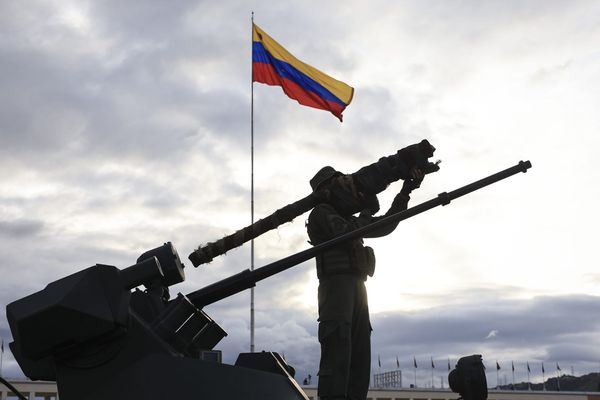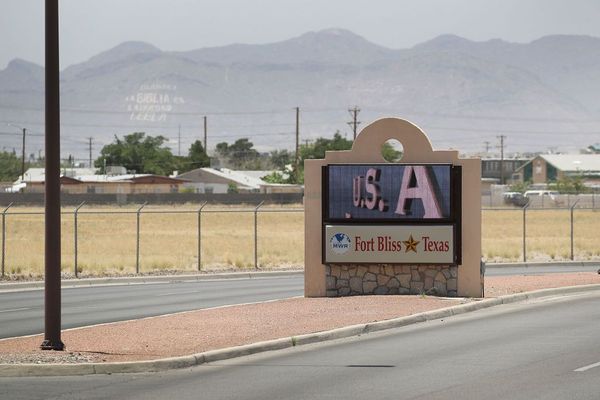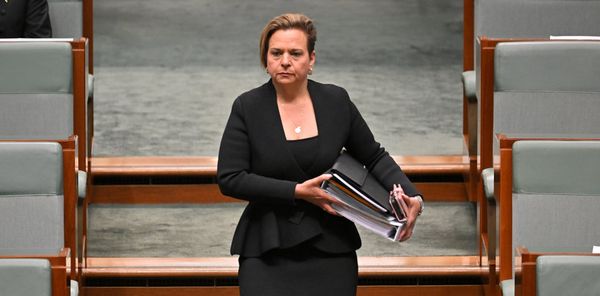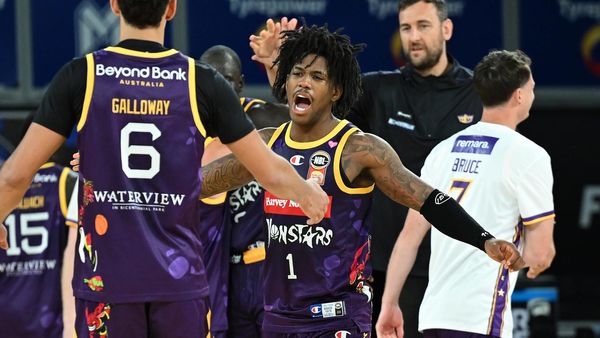
Summary of the day
Geert Wilders’ far-right, anti-Islam Party for Freedom (PVV) is on course to be the largest party in the Dutch parliament, with 37 seats in a major electoral upset whose reverberations will be felt around Europe.
A GreenLeft-Labour party alliance (GL/PvdA) led by the former EU commissioner Frans Timmermans finished second with 25 seats.
The liberal-conservative Party for Freedom and Democracy (VVD), led by the outgoing justice minister, Dilan Yeşilgöz-Zegerius, got 24 seats.
Much will now depend on a coalition-building process, and whether parties are willing to join a government that includes the PVV.
Wilders said that he wants to be prime minister and that the first thing is a significant restriction on asylum and immigration.
News that Wilders’ far-right, anti-Islam party had emerged with the most votes set off alarm bells for Dutch Muslims over what might lie ahead in a country once regarded as a beacon of tolerance.
French far-right politician Marine Le Pen said she felt Wilders had “evolved” and that his results were the consequence of a kind of “normalisation”.
Jan Zahradil, a leading figure within the European Conservatives and Reformists Group, said the “mainstream establishment” had been “left shocked”.
The European Greens said that if VVD joins a coalition with the far-right PVV, it should be expelled from the Alliance of Liberals and Democrats for Europe (ALDE).
Climate activists from Greenpeace Netherlands said they were protesting this afternoon in The Hague, waving banners that say “No climate denier as our prime minister”.
Matthijs Rooduijn, an associate professor of political science at Amsterdam University, said Wilders had not become less radical in his ideas, but his approach was different in the campaign.
Hein de Haas, a sociologist at the University of Amsterdam, said the VVD’s strategy of focusing the campaign on immigration had backfired and legitimised Wilders.
Alexander Clarkson, a lecturer in German and European studies at King’s College London, said he suspected “the trajectory of Wilders in power would be that of Haider as a populist entirely focused on gaining power yet struggles to use it”.
Updated
The European Greens said today that if VVD joins a coalition with Geert Wilders’ far-right PVV, it should be expelled from the Alliance of Liberals and Democrats for Europe (ALDE).
Thomas Waitz and Mélanie Vogel, co-chairs of the European Green party, said in a statement that “the VVD has a big responsibility when it comes to possible future government coalitions”.
They added:
Will they choose for a democratic coalition? Or will they embrace a coalition with a far-right party that wants to kill climate policy, to leave the European Union, stop all support to Ukraine, and strip minorities in the Netherlands of their rights?
The Green politicians said that “the fact that the VVD is even considering forming a government with a party that is against minorities, against Europe, against the rule of law, and against journalists is simply appalling”.
If the VVD goes into government with the far right, ALDE should expel the party from its membership for clearly violating its most important statutes.
Updated
Climate activists from Greenpeace Netherlands said they were protesting this afternoon in The Hague, waving banners that say “No climate denier as our prime minister”.
The far-right PVV, which is best known abroad for its anti-Muslim rhetoric, has also taken a hard line on policies to stop the planet heating.
In its manifesto it says it wants: “No wasting billions on pointless climate hobbies, but more money for our people.”
Heleen de Coninck, professor of climate policy at Eindhoven University of Technology, said:
PVV is close to climate denialism. It’s not quite denying that climate change is happening and human-made any more, but this is a recent turn.
The party wants more oil and gas exploration, to stop building wind turbines and solar farms, and is in favour of continuing to heat houses with fossil gas. It also wants to abolish the Dutch climate law and leave the Paris agreement on climate change.
Still, said De Coninck: “For many of its proposals the party will not find a majority at all in parliament. There was an easy majority for the climate law in parliament, and that has not changed.”
The Netherlands, 26% of which lies below sea level, is an outsize polluter and hub for European industry and agriculture. Its efforts to cut nitrogen pollution have led to widespread protests from farmers.
Updated
Matthijs Rooduijn, an associate professor of political science at Amsterdam University, who studies populism and polarisation, said there were multiple reasons for Geert Wilders’ unexpectedly strong performance.
“There is in general a context that is favourable for a rightwing populist party, because there is a lot of political discontent and because there is a lot of talk about immigration and asylum,” he said.
When Mark Rutte led the VVD, he “was not willing to collaborate with Wilders”. But under new VVD leader Dilan Yeşilgöz-Zegerius “that changed, and she said that she was not going to exclude him and that it would depend on his programme and on his ideas”.
“Basically she opened the door a little bit,” the academic said, “and that I think had huge consequences.”
Plus, Rooduijn noted, “Wilders really changed his approach”.
He did not become less radical in his ideas. His election programme was as radical as ever. But his approach was different, his style was different. He said that Islam was not his core priority any more, that there were different issues that were more important.
He also said that he really wanted to form a government coalition and he really was cooperative. He said to voters and to other parties, ‘listen, I really want to collaborate. I really want to form a government. I want to do it with you. So in tone it was a very different Geert Wilders.
But his ideas never changed. His plans about Islam were still the same.
Another element was voters’ preference for a rightwing coalition, according to Rooduijn.
We know that many voters wanted a rightwing government coalition. And then he really, I mean skillfully made the argument that if voters wanted a rightwing coalition, they needed to vote for him.
Updated
In Kyiv, which has faced growing western war fatigue, the Dutch election results will be a worry.
Like other far-right leaders on the continent, Wilders has praised Vladimir Putin’s rule, rallying against what he has described as “hysterical Russophobia” in Europe.
Four years after Russia annexed the Crimean peninsula, Wilders travelled to Moscow and met senior Russian officials in the Duma, a trip that was fiercely condemned by relatives of Dutch victims of the shooting down of flight MH17, who blamed him for ignoring Moscow’s part in the disaster.
Since Russia’s invasion of Ukraine, Wilders has somewhat distanced himself from the Kremlin, calling the invasion a mistake. But a government under Wilders is unlikely to play the same role in helping Ukraine as seen under the longtime prime minister Mark Rutte, who led the effort to deliver F-16 combat aircraft to Ukraine.
In one of the last debates before the election, Wilders said he would not support sending Ukraine more weapons, a statement that will send a chill through Ukraine, as military aid already appears to be faltering.
Read the full story here.
Updated
So what happens now?
The Dutch have one of the world’s most proportional, splintered multiparty systems, which means it is difficult to form a coalition, and you don’t vote for a prime minister either.
In order to form a majority, something the parliamentary website describes as “a complex and exciting process”, the leaders of political parties appoint a scout to start talks. Within a week of elections, the sitting parliament appoints an informateur to carry out detailed negotiations with the most likely candidates.
If there’s a potential alliance, the formateur – probably the next prime minister – concludes talks, divvying up cabinet and ministerial posts according to parties’ number of seats and policy preferences. They sign a coalition agreement, typically as thick as a Charles Dickens novel, present their plans in parliament and have a vote of confidence.
Read the full explainer here.
Share your view
If you’re a voter in the Netherlands, share your reaction to the election result.
Dutch Muslims fearful for future after ‘shocking’ election results
Geert Wilders described it as the “most beautiful day” of his political life. But for many across the Netherlands, news that Wilders’ far-right, anti-Islam party had emerged with the most votes in Wednesday’s election set off alarm bells over what may lie ahead in a country once regarded as a beacon of tolerance.
“These election results are shocking for Dutch Muslims,” said Muhsin Köktas of the Contact Body for Muslims and Government. “We did not expect such a party with a programme that is against the basic principles of the rule of law to be so big.”
At the helm of the Party for Freedom (PVV), Wilders has long taken aim at Islam, describing it as a fascist ideology of “a retarded culture” and a “backward religion”. Since 2004, he has been under police protection and in 2016 was convicted of discrimination after he vowed to ensure there were “fewer Moroccans” at a campaign rally. A court later cleared Wilders of inciting discrimination, though it upheld his conviction for insulting Moroccans.
Though he sought to soften his anti-Islam rhetoric in the lead-up to the elections, the party’s manifesto includes a ban on mosques, the Qur’an and Islamic headscarves in government buildings. As his party’s gains became clear on Wednesday evening, Wilders vowed to push policies “within the law and constitution”.
The apparent change in tone was of little comfort to Köktas. “We have great concerns about the future of Islam and Muslims in the Netherlands,” he said.
He hoped that people from across the Netherlands would join together to defend and protect the rule of law. “This is absolutely necessary, not only for the future of Muslims but also for the future of the peaceful Dutch society,” he added.
Read the full story here.
• This post was amended on 24 November 2023 to clarify that Geert Wilders was convicted in 2016 of insulting Moroccans, but not of inciting discrimination.
Updated
Opinion: The Netherlands underestimated the far right – and Geert Wilders’ victory is the result
Cas Mudde writes:
How do we make sense of the political earthquake that has put Wilders and his PVV party in first place and how will it affect Dutch and European politics? The first, and most important, lesson is one that Dutch politicians in particular should have known, as it has happened over and over again in the past three decades in the Netherlands and throughout western Europe. If you make the elections about the issues of the far right, notably the “problem” of immigration, the far right wins.
Read the full story here.
Caroline van der Plas, the leader of the Farmer–Citizen Movement (BBB), said today she was interested in entering a coalition with Geert Wilders’ PVV, provided that he moderate some of his positions, NOS reported.
BBB won seven seats.
Updated
Rem Korteweg, a senior research fellow at the Clingendael Institute, a Dutch thinktank, says the Netherlands is not leaving the EU anytime soon – but that the spectre of an exit is back in Dutch politics.
“If Wilders is able to form a government, it will be very critical of any new EU initiatives, spending, agreements or enlargement,” he said.
#Nexit won't happen (any time soon), but its spectre is back in Dutch politics.
— Rem Korteweg (@remkorteweg) November 23, 2023
If Wilders is able to form a government, it will be very critical of any new EU initiatives, spending, agreements or enlargementhttps://t.co/w4jthpEAql
Updated
Here is footage of a dramatic election night in the Netherlands yesterday.
Dirk Gotink, spokesperson for the president of the centre-right European People’s party, Manfred Weber, said migration was “underestimated by the left” and that the VVD’s “mistake” was “not the topic, it was normalizing Wilders from the start”.
Migration is a key concern across all of the electorate. It is underestimated by the left, and they are paying the price for it, with the worst combined result in decades. The VVD mistake was not the topic, it was normalizing Wilders from the start. https://t.co/hPdXQ3bPUh
— Dirk Gotink (@DirkGotink) November 23, 2023
Updated
In Rotterdam, the Dutch election’s outcome is hardly a shock to either supporters or opponents of Geert Wilders.
Annie, 66, a retired secretary, who voted to keep the outgoing prime minister Mark Rutte’s party in power said: “I thought he would get a lot of votes but not this much, but it is not a surprise, people are very angry about immigration, housing, the elderly, everything but I hope that Wilders won’t stay in government.”
Down the road from Rotterdam Centraal station, Jeannette, 34, is receiving a delivery of bags of potatoes for the chip shop where she works.
She voted for Wilders, largely out of anger that she and her family including grandparents have to pay so much for everything.
“While he said ‘enough is enough’ he is right ‘enough is enough’. We pay too much tax, too much for healthcare, too much for rent. We can’t take it any more.
She doesn’t agree with all his past declarations including a ban on the hijab. “If people want to wear that I understand.”
Updated
Geert Wilders aims to be PM after shock result and calls for immediate asylum and immigration restriction
Geert Wilders said today that he wants to be prime minister and that he was in favour of a referendum on whether the Netherlands should leave the European Union, Reuters reported.
“But the first thing is a significant restriction on asylum and immigration,” the far-right politician said.
Wilders also said that if he were to become prime minister, he would be prime minister for all Dutch people.
Onze nieuwe fractie van maar liefst 37 leden (!) kwam voor het eerst bijeen vanmorgen onder het toeziend oog van heel veel pers. We gaan keihard werken om Nederlanders weer op 1 te zetten! #PVV pic.twitter.com/97VOxeCX4d
— Geert Wilders (@geertwilderspvv) November 23, 2023
Updated
Readers weigh in on the Dutch election results
A number of readers have sent in their thoughts on the outcome of the election.
“People didn’t learn much from history. The intolerance is unbelievable,” wrote one reader.
Another noted: “The disconnect between the biggest cities and the countryside is huge.”
And while the election was not about the Netherlands’ membership in the EU, some British readers living in the country have raised concerns about the Netherlands’ future in the bloc.
One reader, however, celebrated the results, expressing hope that after Argentina and the Netherlands, the right would do well in the United States next year.
Updated
So what’s next? The Netherlands is likely to enter a complicated period of coalition-building.
Geert Wilders’ far-right Party for Freedom got the most seats – but that doesn’t mean he will necessarily end up in government.
A GreenLeft-Labour party alliance (GL/PvdA) has 25 seats, and the Party for Freedom and Democracy (VVD) is at 24 seats. Put together with the New Social Contract’s (NSC) 20 seats and the social liberal Democrat 66’s nine seats, this type of grouping could have 78 seats – a majority.
One alternative configuration could include Wilders: if the VVD and NSC agree to enter a coalition with PVV. Such a coalition would have 81 votes.
Updated
As the Netherlands – and European capitals – assess the unexpected outcome of the Dutch election, Geert Wilders is celebrating with cake.

Updated
The Austrian Freedom Party’s Harald Vilimsky said he is proud of his political friends, posting a photo with Italy’s Matteo Salvini, France’s Marine Le Pen and the Netherlands’ Geert Wilders.
Bravo, Geert!!!!! Stolz auf meine politischen Freunde und unsere Allianz🙂@matteosalvinimi @geertwilderspvv @MLP_officiel #fpoe #idgroup pic.twitter.com/ierixzu0bt
— Harald Vilimsky (@vilimsky) November 23, 2023
Le Pen: Wilders' results consequence of 'normalisation'
The French far-right leader Marine Le Pen, whose National Rally party is the biggest single opposition party in the French parliament, congratulated Geert Wilders.
Le Pen described Wilders’ Party for Freedom (PVV) as an ally with her party in the European parliament, telling France Inter radio that Wilders’ election performance showed that “more and more countries at the heart of the EU are contesting the way it works ... and want us to master immigration, which is seen by many European peoples as massive and totally anarchic today”.
She said Wilders’ positions on Europe raised the question of what Europe had become: “An obese, technocratic structure that moves forward by sanctions and threats.”
Asked if she backed Wilders’ outrageous style of politics, she said that wasn’t up to her, the parties were different. She said he had sometimes used shock tactics: “That’s his method, that’s his way”.
Le Pen said she felt he had “evolved” on that and that his results were the consequence of a kind of “normalisation”.
The French finance minister, Bruno Le Maire, told Franceinfo radio that Wilders’ showing was a consequence of “all the fears that are emerging in Europe” over immigration and the economy.
But he also said: “The Netherlands are not France.”
"La bonne nouvelle, c'est quand les peuples peuvent s'exprimer !"
— France Inter (@franceinter) November 23, 2023
Marine Le Pen salue la victoire du parti d'extrême droite PVV aux élections législatives néerlandaises. "Geert Wilders et son mouvement sont des alliés du Rassemblement national", dit-elle. #le710inter pic.twitter.com/3XS1aHQU0l
Updated
Jan Zahradil, a Czech member of the European parliament and leading figure within the European Conservatives and Reformists Group, said this morning that the “mainstream establishment” has been “left shocked”.
“But if they don’t take this message seriously, other countries will follow suit,” he said, adding:
And the message? Enough migration. Enough Green Deal. Enough Brussels interference.
Geert Wilders decisively won Dutch snap elections. Mainstream establishment left shocked, but if they don’t take this message seriously, other countries will follow suit.
— Jan Zahradil (@ZahradilJan) November 23, 2023
And the message? Enough migration. Enough Green Deal. Enough Brussels interference.
It’s as simple as that. https://t.co/Sdtmm1Eq9F
Hein de Haas, a sociologist at the University of Amsterdam, said today that the VVD’s strategy of focusing the campaign on immigration had backfired and legitimised the far-right candidate Geert Wilders.
Dutch election summary: The leading VVD party had the cabinet fall over asylum and centred the entire campaign on immigration. This strategy backfired as it actually legitimised Wilders, leading him to triumph. As JM Le Pen already said, people vote for the original, not the copy
— Hein de Haas (@heindehaas) November 23, 2023
Updated
Alexander Clarkson, a lecturer in German and European studies at King’s College London, said this morning: “Left and right as broader camps each have a substantial presence and will still do so.
“What is constantly shifting is which strand of the right – from far right to far right populists to conservatives to Christian democrats to rightish neo-liberals – is dominant at any one time.”.
He said Geert Wilders, like Jörg Haider in Austria, “has built his success on condemning coalition horsetrading that imposed policy compromise at the expense of ideological purism on every other Dutch party”.
He added:
I suspect the trajectory of Wilders in power would be that of Haider as a populist entirely focused on gaining power yet struggles to use it effectively once it is in his hands rather than that of a canny strategist like Giorgia Meloni.
A characteristic that Far Right populists like Haider, Farage and Wilders share is a desperate hankering after respect from the political establishment they spend their careers condemning.
A characteristic that Far Right populists like Haider, Farage and Wilders share is a desperate hankering after respect from the political establishment they spend their careers condemning
— Alexander Clarkson (@APHClarkson) November 23, 2023
Updated
Geert Wilders celebrated this morning as counting showed his far right PVV party took 37 seats – two more than expected in last night’s exit polling and significantly more than predicted in opinion polling during the campaign.
❤️ 37 ZETELS ❤️ pic.twitter.com/kzD6PiiCkQ
— Geert Wilders (@geertwilderspvv) November 23, 2023
Geert Wilders’ far-right, anti-Islam Party for Freedom (PVV) is on course to be the largest party in the Dutch parliament, in a major electoral upset whose reverberations will be felt around Europe.
The PVV, whose manifesto includes calls for bans on mosques, the Qur’an and Islamic headscarves in government buildings, is expected to win 37 seats in the 150-seat parliament, more than double the number it won in the previous ballot in 2021.
However, it is unclear whether Wilders – whose party has finished second and third in previous elections, but always been shut out of government – will be able to win enough support to form a coalition with a working parliamentary majority.
“I call on the parties,” Wilders said in an initial reaction after the vote. “The campaign is over and the voters have spoken. Now we will have to look for agreements with each other.”
He insisted in his victory speech that he was “confident we can reach an agreement”, adding: “I understand perfectly well we should not take any measures that would be unconstitutional.”
Far-right figures across Europe, including Hungary’s Viktor Orbán, France’s Marine Le Pen, Matteo Salvini in Italy, and Germany’s AfD rushed to congratulate the PVV leader.
The heads of the three other biggest Dutch parties have all said they would not serve in a PVV-led cabinet.
Jon Henley, Pjotr Sauer and Senay Boztas
Updated
Wilders' far-right Party for Freedom takes 37 seats
With nearly all votes counted, preliminary results in the Dutch election show Geert Wilders’ far-right Party for Freedom (PVV) took 37 seats, more than any other party and significantly more than expected in opinion polling during the campaign.
A GreenLeft-Labour party alliance (GL/PvdA) led by the former EU commissioner Frans Timmermans finished second with 25 seats.
The liberal-conservative Party for Freedom and Democracy (VVD), led by the outgoing justice minister, Dilan Yeşilgöz-Zegerius, got 24 seats.
Much will now depend on a coalition-building process.

Updated
Welcome to the blog
Welcome back to the Europe blog.
Send thoughts and tips to lili.bayer@theguardian.com.
Updated







